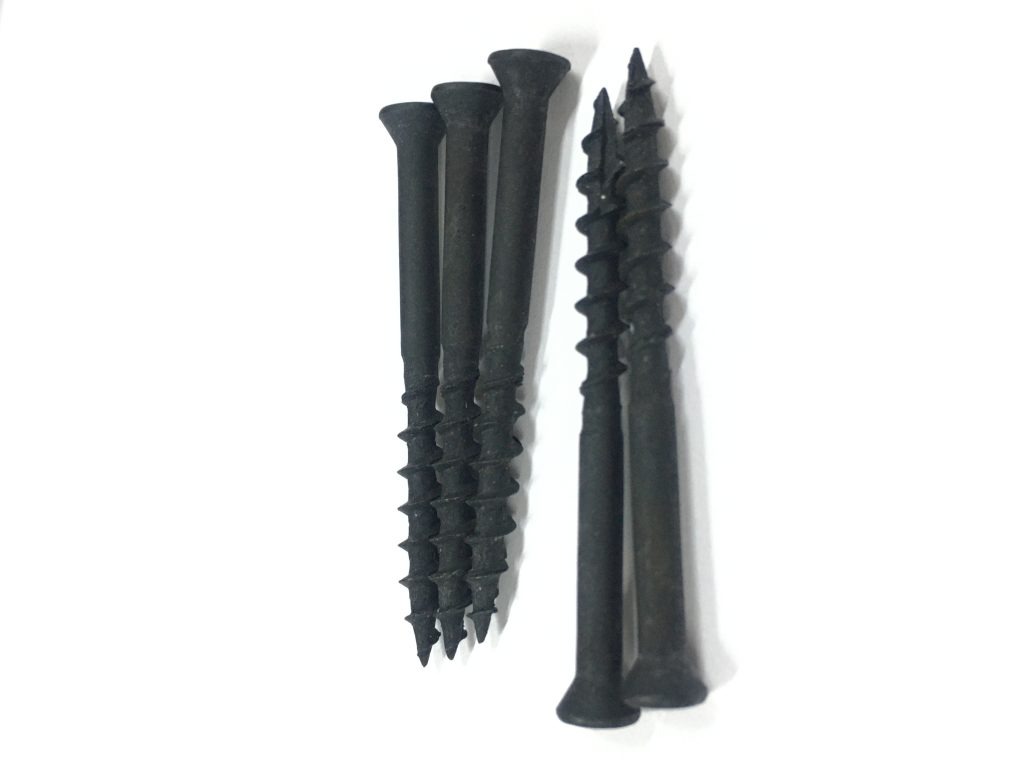How to Prevent Screws from Rusting: A Comprehensive Guide
Screws are one of the most common types of fasteners used in a wide variety of applications, from construction to electronics to furniture assembly. However, screws are also susceptible to rust and corrosion, which can weaken them and lead to failure.
There are a number of ways to prevent screws from rusting, including choosing the right material, applying a coating or treatment, and following proper installation and maintenance procedures. This article will provide a comprehensive overview of how to prevent screws from rusting, covering everything from the different types of corrosion-resistant materials to the various coating and treatment options available.

Understanding Rust and Corrosion of Screws
Rust is a form of corrosion that affects iron and steel alloys. It is caused by the oxidation of iron when it is exposed to oxygen and water. The rusting process begins with the formation of a thin layer of iron oxide on the surface of the metal. This layer then reacts with more oxygen and water to form thicker layers of rust.
Corrosion is a more general term that refers to the deterioration of a metal caused by a chemical or electrochemical reaction. There are many different types of corrosion, but the most common type is electrochemical corrosion. This type of corrosion occurs when two different metals are in contact with each other in the presence of an electrolyte, such as water. The less noble metal in the pair will corrode, while the more noble metal will remain unaffected.
Choose Corrosion-Resistant Materials for Screws
The most effective way to prevent screws from rusting is to use corrosion-resistant materials. The most common corrosion-resistant materials used for screws are stainless steel, galvanized steel, and brass.
Stainless steel is a type of steel that contains chromium, which forms a thin, protective layer of chromium oxide on the surface of the steel. This layer prevents the underlying steel from corroding. Stainless steel screws are available in a variety of grades, each with different levels of corrosion resistance.
Galvanized steel is steel that has been coated with a thin layer of zinc. Zinc is a more reactive metal than steel, so it will corrode before the steel does. This protects the steel from rusting. Galvanized steel screws are less expensive than stainless steel screws, but they are also less corrosion-resistant.
Brass is an alloy of copper and zinc. Copper is also more reactive than steel, so it will corrode before the steel does. This protects the steel from rusting. Brass screws are often used in decorative applications because of their attractive appearance. However, brass screws are not as corrosion-resistant as stainless steel or galvanized steel screws.

Coatings and Treatments for Screws
If it is not possible to use corrosion-resistant materials, then coatings or treatments can be applied to screws to prevent them from rusting. Some common coatings and treatments include:
- Paint: Paint can be used to coat screws and protect them from the elements. However, paint can be chipped or scratched, which can expose the underlying metal to corrosion.
- Powder coating: Powder coating is a process in which a dry powder is electrostatically applied to the surface of a screw and then baked in an oven. This creates a durable coating that is resistant to chipping and scratching.
- Electroless nickel plating: Electroless nickel plating is a process in which a thin layer of nickel is deposited on the surface of a screw without the use of electricity. This coating is resistant to corrosion and wear.
Choosing the Right Screws for the Job
When choosing screws, it is important to consider the environment in which they will be used. If the screws will be exposed to the elements, such as in a construction application, then it is important to use corrosion-resistant screws.
It is also important to choose the right type of screw for the specific application. For example, drywall screws are designed for use in drywall, while wood screws are designed for use in wood. Using the wrong type of screw can lead to failure.
Proper Installation and Maintenance of Screws
Proper installation and maintenance are also important for preventing screws from rusting. Screws should be driven in all the way to avoid leaving any exposed threads. Screws should also be tightened periodically to ensure that they do not come loose.
If screws are exposed to the elements, such as in a construction application, it is important to inspect them regularly for signs of corrosion. If rust is found, it should be removed immediately using a wire brush or other abrasive tool. The screws can then be coated or treated with a corrosion-resistant material.

Conclusion
Preventing screws from rusting is essential for ensuring their longevity and performance. By choosing the right material, applying a coating or treatment, and following proper installation and maintenance procedures, you can help to prevent rust and corrosion, and keep your screws looking and working their best for years to come.









